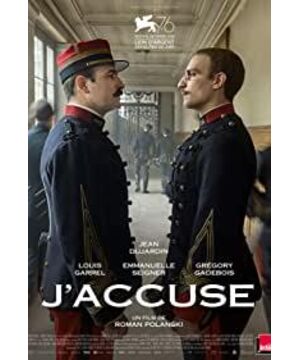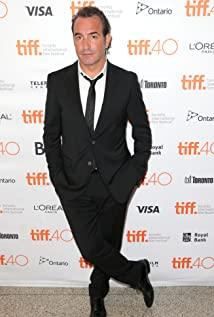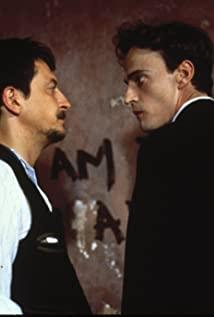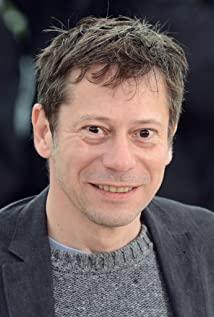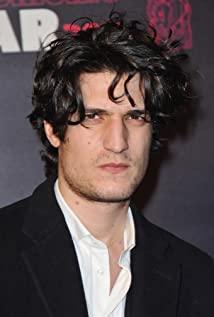People, isn't the precious thing in "Flexible"?
Flexibility is to correct mistakes, not to be dominated by structure and logic
Correcting mistakes is to seek truth, so what is "truth"?
In Polanski, where should the "truth" stand?
What force is fighting?
"True", I think there is a dimension of "eternity"
And here, the basic pursuit of those who "pursue true kindness and resist violence and evil" is "eternity";
"The value of art" is also "eternal"
Then the question is - can people's pursuit of art transcend, or (more neutrally) transcend the love for the truth, the good and the beautiful and the disgust for violence and evil?
Undoubtedly, art needs its freedom, otherwise, art will lose itself and become the carrier of some specific ideas, become "dogma", become "preaching"...
——In works of art, it is possible to violate ethics and express things that cannot be expressed in ordinary times, because its essence is a kind of warning - to tell the viewer: if you make this choice, what will happen. Make people reflect, make people look at.
But what is wrong is that the event actually happened.
In reality, evil is evil, and it cannot be transformed into anything else, because
It has manifested its evil final form.
It is despised and hated by people.
--
Therefore, as a person, people will express their thoughts, likes and dislikes
It's nothing but sins punished, hurts appeased
In this way, society will be better (encouraging good deeds, punishing evil deeds)
But how to do it? As one of the little mortal beings
Therefore, I can only express my own ideas in this way——
Desire for good, aversion for evil.
This is the praise that people can get by lowering the position of the work and lowering the author's
For, sin must be punished, and if he escapes punishment, punish him with something else.
You must know that the real incident is more than one thing. He includes the perpetrator, the victim, the victim's relatives and friends...
For you, events are in the abstract and you don't have any experience or experience; but not for them - how many nights of crying, how many sleepless nights, how many mental injuries, how serious Psychological damage...
--
"True", there is another level, that is - fairness
People are angry because evil is not punished
This is unfair to the victim.
But at the same time, the film work is not just him
- and producers, editors, music, actors...
Those efforts are not fake. Is it fair to throw all these hard work in the trash can?
--
People are in pursuit of "truth", and in the process of pursuit, they will always encounter such dilemmas.
- what is gained, what is lost;
So many times people's decision is "the lesser of two evils"
Then it becomes a choice of personal value
Value judgments are always subjective
That means, a certain level of fairness will be lost
or complete loss of fairness
It depends entirely on the judgment of the judge
--
Out of love for film art
Out of shock at Polanski's film talent
The artistic value of his films is really amazing, the meanings to films, human art and civilization are too "dazzling", undeniably dazzling, really reluctant to throw them away
So that the emptiness and abstraction of "good, evil, beauty and ugliness" became too abstract, too far from life, and then suddenly lost its luster,
Again, it doesn't seem that important anymore...
After all, the "magical works" in front of you, the undeniable talents are so "true",
And those "truth, goodness, beauty" are too dogmatic, aren't they?
-
What counts as "true" and which is more valuable? Imagine the picture presented in The Pianist
Oh, that's his work
What about "Schindler's List," "Go and See For Yourself," and so on?
--
How can you not let your butt decide your head?
Is it bad to let the butt decide the head?
It's me being too greedy, it's my nature,
"I want it all"
Seems like the best thing to do is to separate the film from the individual—
Not only remembering his mistakes, but also recognizing the value of his work...
--
Regarding the victims of the incident, Samantha herself chose to withdraw the lawsuit and expressed her forgiveness in the HBO documentary
What the truth is, I feel like I'll never know,
But it is undeniable that every time it is mentioned, it is a kind of injury to herself and her current family;
At the same time, it also ignores the labor of other film workers.
Losing the "representative" - it is no longer a discussion of the matter itself. The current popular view is the current people's view of good and evil, and it is just a debate about good and evil.
Events don't repeat, and even if they repeat, they won't appear the same
The reality we live in is made up of past and future—
Past events, and the discussions and value orientations they sparked, determine people's values and choices in the future
The future is also defined by the ideas and choices of people today
This is the weight that this choice carries—your choice determines where the future goes.
--
Liberty and Conservation are never compatible—
With an umbrella, you can't fly freely
You are free to fly, you may face arrows that shoot at your ankles
But what is the problem? It's too much, it's too wide, it's not what the incident was, and it's starting to have a negative impact on the incident personnel.
It is undeniable that this is an out-and-out topic "hot spot", and who (the media) is willing to let it go?
Perhaps their specific identities should be erased from this incident? But people are not good at understanding such abstract events, or abstract events isolate the events and contradictions between people and dilemmas, and abstract descriptions simply cannot make people understand the elements and contradictions in them
As a speaker, this person must have a position, or imply a position, and remarks without a position are like "empty dialogue", no one has any courage and can not attract any audience
No news coverage is no stand
Even if it is not expressed, the viewer will make judgments based on the text
And from a flat level, discussing the work ≈ forgive his original mistakes
--
In fact, what the boycotters are afraid of is that they are afraid that talented people will use their talents to persecute others.
Because the truth is: he escaped the punishment he deserved.
--
What's more important is how other viewers, who were originally unaware, could understand this complex character who is both a genius, a victim and a perpetrator in a three-dimensional manner?
And what was in front of him - discussing his work, praising his genius
Did you see it? "Genius makes people do whatever they want", what an easy conclusion to draw...
Or maybe I'm too pessimistic or my logic is too weird, that's fine
--
I have this idea: Those who say that they should look at the character and the work separately, is it not an attitude of "nothing to do with oneself"? Flexibility is the best reason we spectators can "play at will",
there is nothing wrong,
After all, this is the "treasure of mankind", grief belongs to certain people, and they are not harmed;
And to resist something is also a kind of "arrogant" approach——
In fact, perhaps they have no understanding, no experience, and no awe of art at all?
But that's just a little idea of mine,
I think denying a person by one thing cannot be regarded as "a kind of persecution" on another level;
But I also have doubts about "separating character works and rationally understanding his mistakes and his talents"
- After all, when I see you complimenting someone's talent, how does it make me feel that you're also disgusted by their crimes?
How is the truth? How to choose? How is the value?
It seems that only certain sounds are playing information from certain angles,
And a group of people below it responded with a "carnival"
After the carnival, there may be nothing left
There is no doubt that works can spread farther
After all, when it comes to Edison, the first reaction will be "the man who made the light bulb".
——In the far future, when the character of Polanski gradually fades in people's hearts, when he becomes a historical figure, then the focus should return to his films and the artistic value of his works
Of course, now I hope he'll be credited as "The Punishable Criminal" and "The Talented Filmmaker".
--
The last thing you can do is solve the problem with complexity
Maybe that's not a good question in itself,
And it's not a rational act to take anger at the work
But the truth is, mistakes have happened, choices have been made, and no one has changed the past
All that can be done now is to adopt a new "strategy"
——Give yourself the reason that you can be self-consistent and reconfirm: the world will still develop in a good direction
The complexity of the judgment method just corresponds to the complexity of the problem,
Perhaps this is the only way to achieve the "truth" of a higher dimension.
--
The thoughts and values of others are beyond control
I have thought about "whether I am not comprehensive enough", "whether I have been 'kidnapped' by the 'values of justice'"
But, then I thought, that no one can really be "full",
In a sense, everyone brings a layer of "veil", perhaps from the environment, perhaps from experience...
It is a voice to incriminate the crime to the work, and it is also a voice to call for the two to be seen separately...
It's a way to stare at the crime, it's a way to be addicted to the work, it's a way to know his crime and his work from two perspectives....
Every practice has its reasons and effects
So have a lot of voices, a lot of perspectives, and have them defend and argue for themselves,
Then, see what value judgments most people make
——Look, what kind of future people have chosen.
View more about An Officer and a Spy reviews


